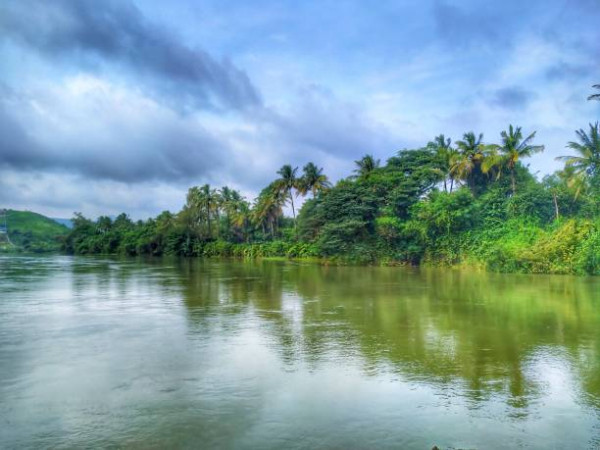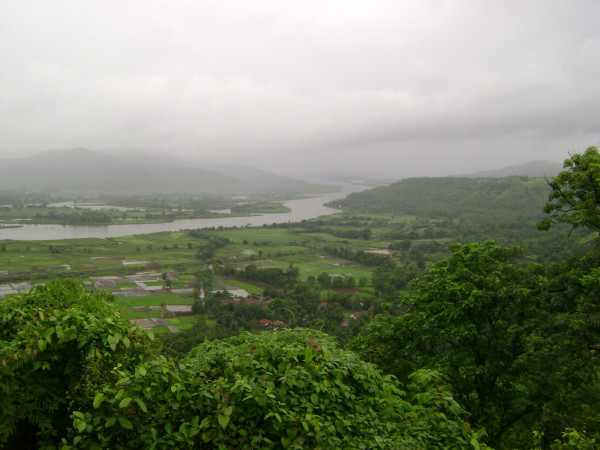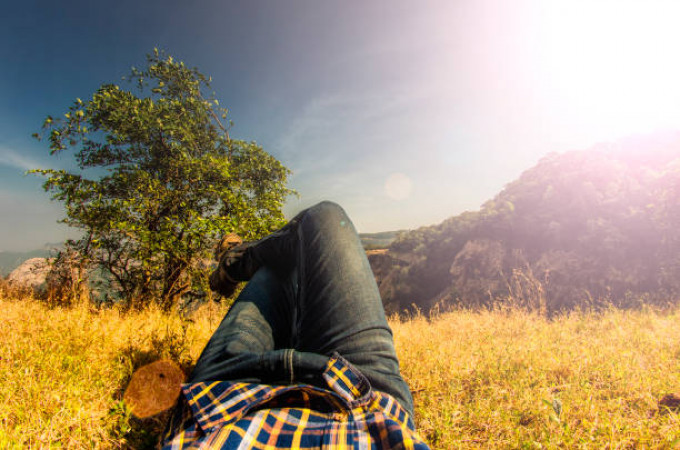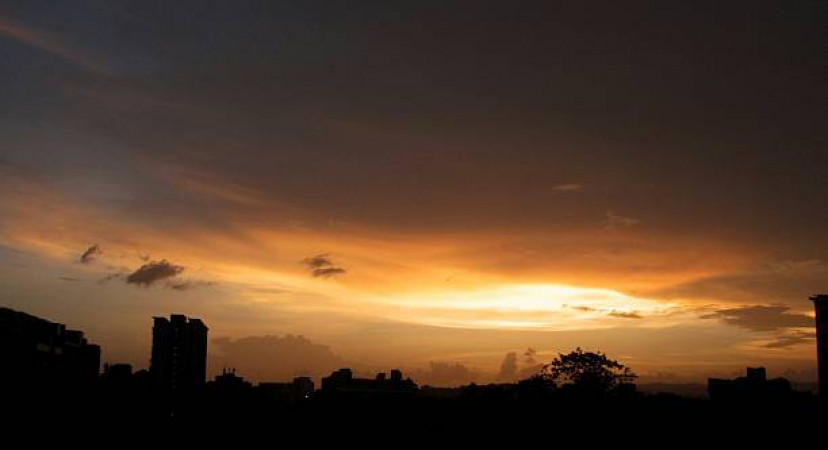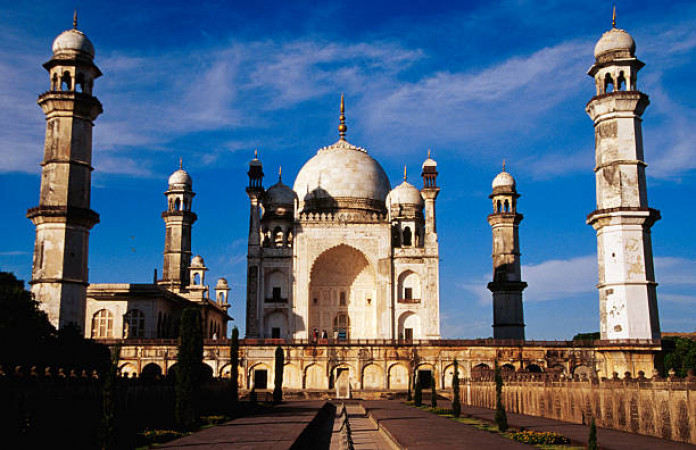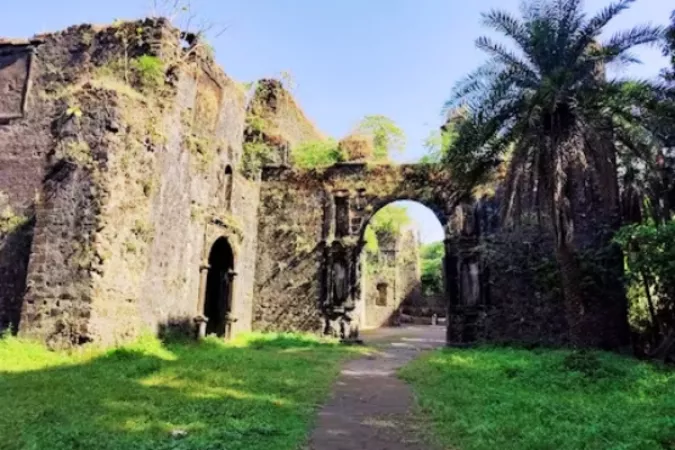
Bhiwandi Travel Guide
Bhiwandi, located in the state of Maharashtra, India, is a city known for its historical significance as a major center for textile manufacturing. Situated near Mumbai, Bhiwandi has a rich cultural heritage and is famous for its textile industry that dates back centuries. The city boasts a blend of traditional Indian culture and modern industrial development, making it a unique destination for travelers.Top Attractions in Bhiwandi
1. **Jai Bhavani Mata Mandir**: A popular temple dedicated to the goddess Bhavani. 2. **Nizampur**: A historic village known for its ancient temples and scenic beauty. 3. **Bhiwandi Fort**: Explore the ruins of this ancient fort and enjoy panoramic views of the city. 4. **Cherpoli Dam**: A tranquil spot for picnics and relaxation amidst nature. 5. **Shri Manjunatha Swamy Temple**: An architectural marvel dedicated to Lord Shiva.Bhiwandi is Famous for
Textile manufacturing industry.Top Attractions in Bhiwandi
- Jai Bhavani Mata Mandir - Nizampur - Bhiwandi Fort - Cherpoli Dam - Shri Manjunatha Swamy TempleWhat's Great about Travelling to Bhiwandi?
- Rich cultural heritage - Unique blend of tradition and modernity - Perfect for history and nature loversWhat's Not So Great about Travelling to Bhiwandi?
- Limited tourist infrastructure - Busy and crowded roads - Lack of luxury accommodationsTravel Tips for Bhiwandi
- **Visa Requirements**: Check visa regulations before traveling. - **Transportation**: Opt for local transport like buses for getting around. - **Safety**: Be cautious of pickpockets in crowded areas.Important Bhiwandi trip information
- Ideal Duration: A weekend trip is sufficient to explore the major attractions.
- Best Time to Visit: The winter months from November to February offer pleasant weather.
- Nearby Airports and Railway Stations: The nearest airport is Chhatrapati Shivaji Maharaj International Airport in Mumbai, and the closest railway station is Bhiwandi Road Railway Station.
FAQ's on Bhiwandi
Q1: What is the best time to visit Bhiwandi?
The best time to visit Bhiwandi is during the winter months from November to February when the weather is pleasant and ideal for exploring the city. Avoid the monsoon season from June to September due to heavy rainfall. Summers can be hot and humid, so it's best to plan your visit accordingly.
Q2: Do I need a visa to travel to Bhiwandi?
Tourists traveling to Bhiwandi will require a valid tourist visa. Make sure to check the specific visa requirements based on your nationality before planning your trip. Some nationalities may be eligible for visa on arrival or e-visa options.
Q3: What are the must-visit attractions in Bhiwandi?
Bhiwandi offers a unique blend of cultural and historical attractions. Don't miss visiting the Bhiwandi Fort, Jai Bhavani Temple, and the Nakane Lake. Explore the local markets for textiles and experience the vibrant street life of the city.
Q4: Is Bhiwandi a safe place to travel?
Bhiwandi is generally a safe destination for travelers. However, like any other city, it's advisable to take precautions against petty theft and be cautious in crowded areas. Avoid wandering alone at night and stay alert to your surroundings.
Q5: What is the local currency in Bhiwandi and can I use credit cards?
The local currency in Bhiwandi is the Indian Rupee (INR). While credit cards are accepted in some establishments in major cities, it's recommended to carry cash for smaller purchases. ATMs are widely available for currency exchange.
Q6: What is the local cuisine like in Bhiwandi?
offers a variety of traditional Maharashtrian dishes, including Vada Pav, Misal Pav, and Puran Poli. Don't miss trying the local street food like Bhel Puri and Pani Puri. Vegetarian options are prevalent, but you can also find non-vegetarian delicacies.
Q7: What transportation options are available in Bhiwandi?
Transportation options in Bhiwandi include buses, auto-rickshaws, and taxis for getting around the city. You can also rent a car for more flexibility in exploring the surrounding areas. Public transport is affordable and reliable.
Q8: Are there any cultural norms or etiquette I should be aware of when visiting Bhiwandi?
When visiting Bhiwandi, it's important to respect local customs and traditions. Dress modestly, especially when visiting religious sites. Remove your shoes before entering temples and show respect to elders. Bargaining is common in markets, so feel free to negotiate prices while shopping.
Q9: I am a travel agent. How can I buy travel leads of Bhiwandi?
Register yourself as a travel agent at agents.tripclap.com and then you can buy travel leads to Bhiwandi once your account is approved. For more details contact our support team at +91-8069186564 or support@tripclap.com

